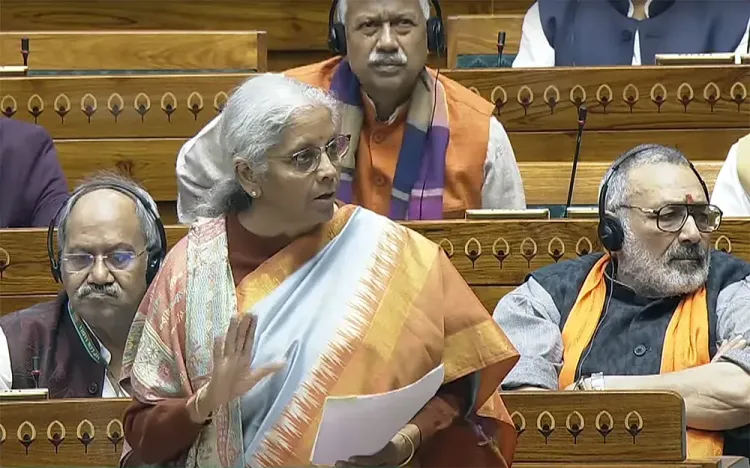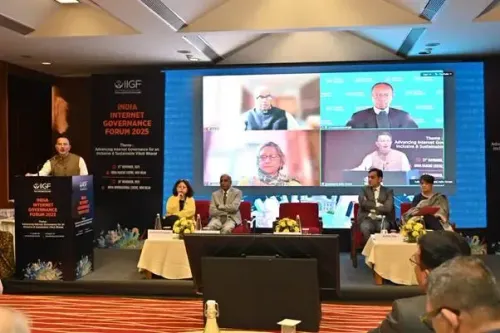Amendment Bill for Banking Laws Aims to Improve Customer Experience and Safeguard Citizens

New Delhi, Dec 4 (NationPress) In a pivotal step to improve customer experience and safeguard citizens, the Lok Sabha on Wednesday approved the Banking Laws (Amendment) Bill, 2024, which permits bank account holders to designate up to four nominees for their accounts.
The increase in the number of nominees is intended to minimize unclaimed deposits in banks.
Finance Minister Nirmala Sitharaman stated that depositors will have the choice of implementing either successive or simultaneous nomination options, while those with lockers will be restricted to only successive nominations.
Another significant modification involves redefining 'substantial interest' for directorships, which may rise to Rs 2 crore from the previous limit of Rs 5 lakh, a figure established nearly sixty years ago.
"India's banking sector is essential to the nation. We cannot afford to let any bank falter. Since 2014, we have been extremely vigilant to ensure the stability of banks. Our aim is to maintain our banks' safety, stability, and health, and over the past decade, the results are evident, benefiting the economy," remarked FM Sitharaman during the discussion.
"Banks are currently being managed professionally. The indicators are robust, allowing them to enter the market, raise bonds, secure loans, and operate their businesses effectively," she added.
The key features of the Banking Laws Amendment Bill include:
- The Banking Laws (Amendment) Bill, 2024 permits the nomination of up to four individuals, including provisions for simultaneous and successive nominations concerning deposits, items in safe custody, and safety lockers.
- Increases the threshold for shareholding of beneficial interest by an individual to Rs 2 crore from Rs 5 lakh.
- Adjusts the reporting deadlines for banks' submission of statutory reports to the Reserve Bank of India, aligning them with the last day of the fortnight, month, or quarter.
- Extends the tenure of Directors (excluding the Chairman and whole-time Director) in cooperative banks from 8 years to 10 years.
- Permits a Director of a central cooperative bank to serve on the board of a state cooperative bank.
- Aims to provide banks with greater autonomy in determining the remuneration for statutory auditors.









